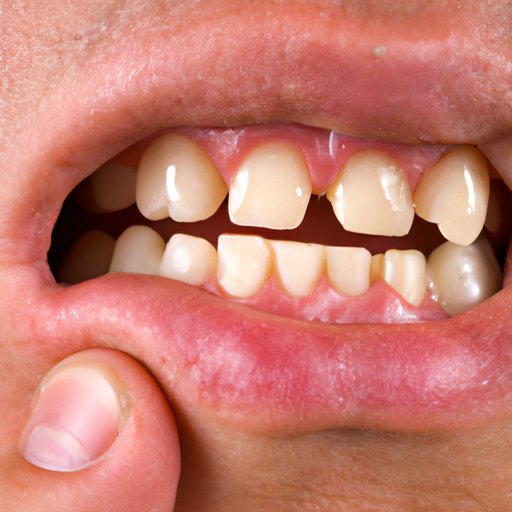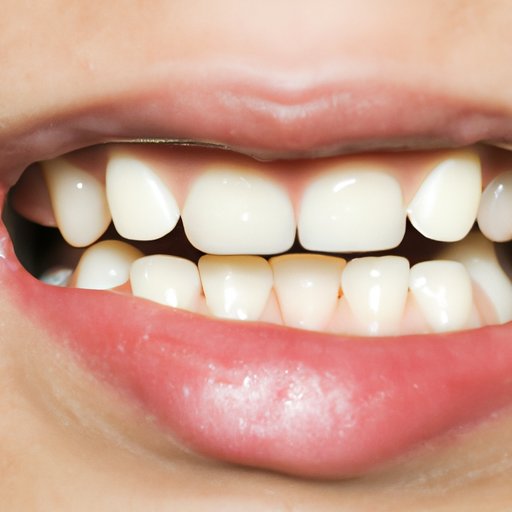Understanding How Many Adult Teeth You Should Have
Having healthy adult teeth is essential for overall health. Adult teeth are permanent teeth that develop after the shedding of primary teeth. Understanding the number of adult teeth one should have is essential as it helps one take good care of their dental health. In this article, we will cover the basics of adult teeth, misconceptions, factors that influence the number of adult teeth, complications arising due to missing or excess teeth, and how to maintain healthy adult teeth.
The Basics: Understanding the Number of Adult Teeth and Their Functions
Adult teeth are permanent teeth that replace primary teeth and develop between the ages of 6 and 12. They play an essential role in chewing food and aiding in digestion. Adult teeth are divided into four types:
- Incisors: Located in the front and center of the mouth, these teeth help bite and cut food.
- Canines: These teeth are pointy and are located between the incisors and premolars. They help rip and tear food.
- Premolars: Located between the canine and molar teeth, they help crush and grind food.
- Molars: Located towards the back of the mouth, they help crush and grind food.
An average adult has 32 teeth, including wisdom teeth. However, many individuals get their wisdom teeth removed, and they typically have 28 teeth.
Common Misconceptions About Adult Teeth and Their Count
There are various misconceptions surrounding adult teeth. One of the common misconceptions is that everybody has the same number of teeth. This is not true as the number of adult teeth an individual has can differ due to various factors. Another common misconception is that wisdom teeth are necessary. However, depending on the angle of emergence, wisdom teeth can cause dental problems and are often removed.
Factors That Affect the Number of Adult Teeth in Individuals
Various factors can affect the number of adult teeth one has. Genetics play a significant role in dentition, and some families may have fewer or more teeth than others. Environmental factors such as poor nutrition, oral hygiene, and trauma can also affect the number of adult teeth. Certain medical conditions such as cleft lip and palate can also cause an individual to have missing or extra teeth.

Complications Arising due to Missing or Excess Adult Teeth
Missing or excess adult teeth can cause various complications such as difficulty in chewing food, speech impairments, and dental issues. Missing teeth can cause the remaining teeth to shift, leading to bite problems and increased risk of decay and gum disease. Excess teeth can cause crowding, leading to oral hygiene issues and bite problems.
Various treatments, including braces, dental implants, and dentures, are available to address missing or excess teeth. It is essential to consult a dentist to determine the best treatment plan depending on an individual’s unique dental structure and needs.
The Importance of Maintaining a Healthy Set of Adult Teeth and Its Effects on Overall Health
Maintaining healthy adult teeth is essential for overall health. Unhealthy teeth can lead to gum disease, dental decay, tooth loss, and other oral health issues. Oral health problems can also cause systemic health issues such as increased risk of heart disease, stroke, and pregnancy complications.
Maintaining a healthy set of adult teeth requires regular brushing, flossing, dental check-ups, and a healthy diet. It is recommended to brush teeth at least twice a day and floss daily to remove food particles and plaque. Regular dental check-ups can help detect any dental issues early and prevent further complications.
Conclusion
Understanding the number of adult teeth is essential for maintaining good dental health. Factors such as genetics and environmental factors can influence the number of adult teeth one has. Missing or excess teeth can cause various complications, and it’s essential to address them promptly. Maintaining good dental health is essential for overall health, and it’s crucial to adopt healthy dental practices such as regular brushing, flossing, and dental check-ups.
Call-to-Action: Make sure to take proper care of your teeth to prevent dental issues and maintain overall health. Consult a dental professional to determine an ideal dental routine that fits your unique dental structure and needs.
